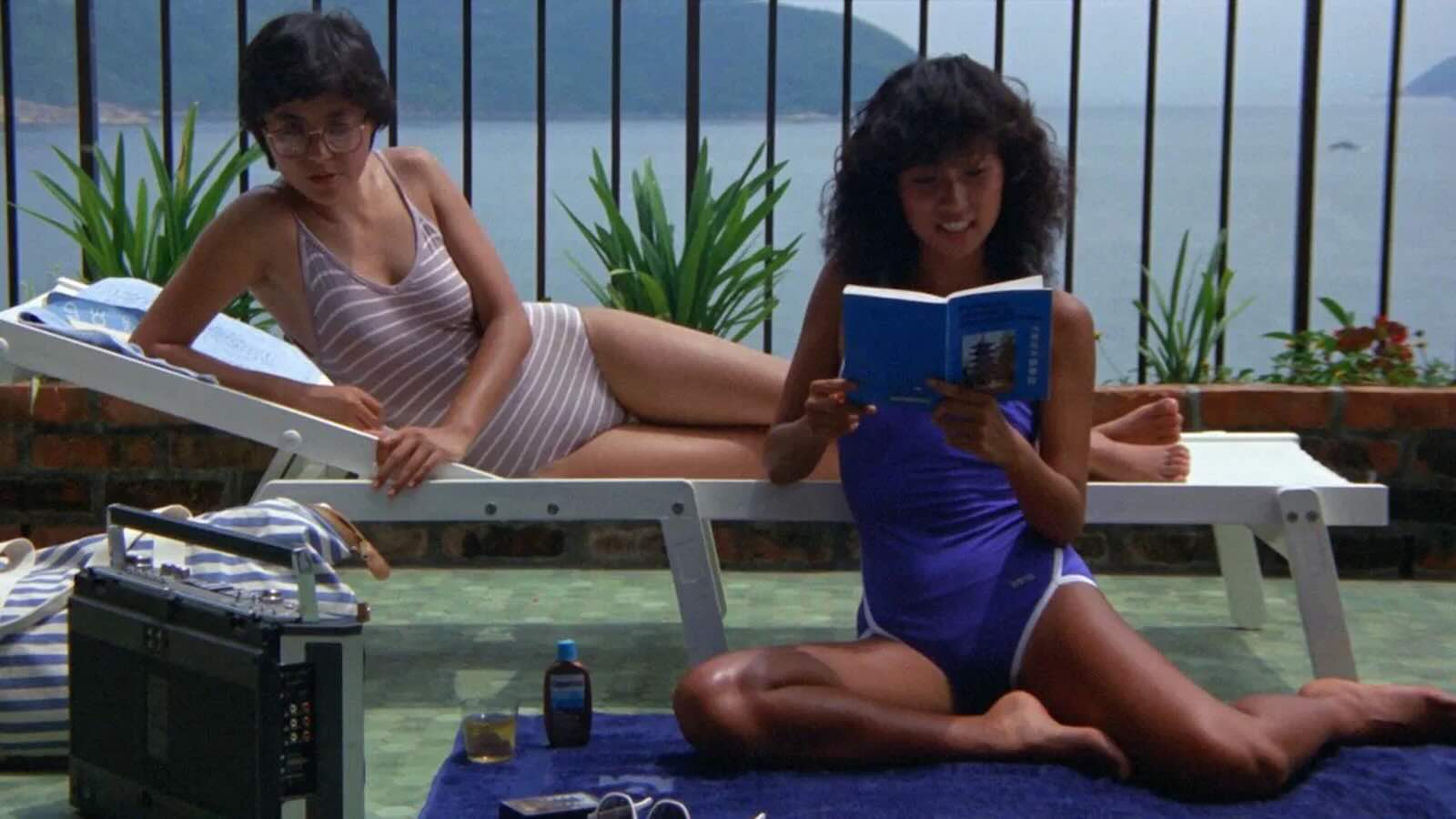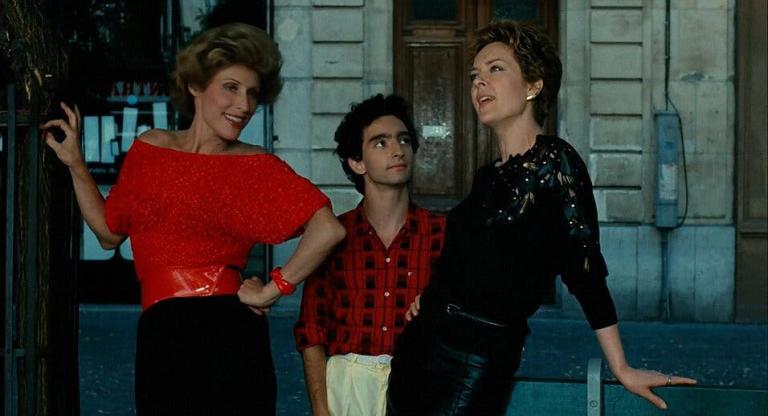Patrick Tam, a pioneer of the Hong Kong New Wave, is a filmmaker whose defining body of work best exemplifies the territory’s unorthodox and multifarious traditions in genre cinema. Films that came out of the colony, and now the S.A.R., rarely fit into clean-cut, pre-packaged commercial categories. Typical offerings range from gun-fu, bromance melodramas to paranormal, slapstick sex comedies. Tam, whose career began like many in the local industry directing TV shows, is perhaps the forefather of applying stylized arthouse sensibilities to wacky, crowd-pleasing premises. No work better captures this hybridized storytelling ethos than Nomad (1982), a film that begins with a Beethoven symphony and ends with a beachside Katana duel.
In what appears to be another typical Hong Kong summer, with swimsuit-clad adolescents frolicking in a public pool and warm evenings spent under a mosquito net, two couples meet under atypical circumstances. The playful yet elusive Kathy (Pat Ha) gets together with lifeguard/taxi driver Pong (Kent Tong). After stealing his swimming trunks, they row on the street, go on a botched date, and make love in the back of a tram. As Kathy skirts away in Pong’s red Taxi, her cousin Louis (Leslie Cheung), a reclusive fashion student who lost his DJ mother at a young age, meets Tomato (Cecilia Yip), a fellow bar patron juggling two telephone calls at once; she’s breaking up with a boyfriend on one hand, while getting jilted by another lover on the opposite handset.
Tam and his ensemble of virile twenty-somethings achieve an impressive level of on-screen synergy. The horny, despondent youths chaotically, but never unconvincingly, spring between moments of absurd humor, grave dramatic intensity, and insatiable lust. For the first half of Nomad, these hijinks and romances amount to a familiar, albeit jarring coming-of-age portrait. But this all changes when Kathy’s estranged ex, Shinsuke (Stuart Ong), appears standing by her balcony door. A sword-wielding Japanese Red Army militant on the run, Shinsuke has come to Hong Kong to evade punishment from his former comrades. As danger closes in on the sun-kissed troupe of vacationers, the unexpecting group waste away in a beach house, with the radio on and their backs against the sunlight.
The film’s English title refers to a vintage yacht owned by Louis’s father, a holiday vessel that one could easily imagine sailing side by side Alain Delon’s Cutter in Purple Noon (1960). It’s the maritime haven where the sweaty, sun-kissed Kathy and Shinsuke fantasize about escape and linger on morbid visions. However, beyond this direct plot reference, Tam’s English and Chinese titles, the latter of which directly translates to “Flaming Youth,” aptly tie together the film’s often disparate moods. Against the backdrop of the ‘80s, a time of astronomic economic prosperity for Hong Kong, a hyper-consumerist, sexy youth culture burns fast and bright, all as violent unresolved tensions begin to bubble over, giving rise to a private juvenile utopia. Through his rag tag group of lost souls, Tam finds momentary solace from urban isolation. The decade marked the beginning of the colony’s own financial and cultural eminence on the world stage, but also an urgent collective reckoning with the looming crisis of sovereignty that would define the territorial discourse for decades to come.
Nomad screens this evening, November 1, and tomorrow November 2, at Metrograph as part of the series “Happy Together.”



